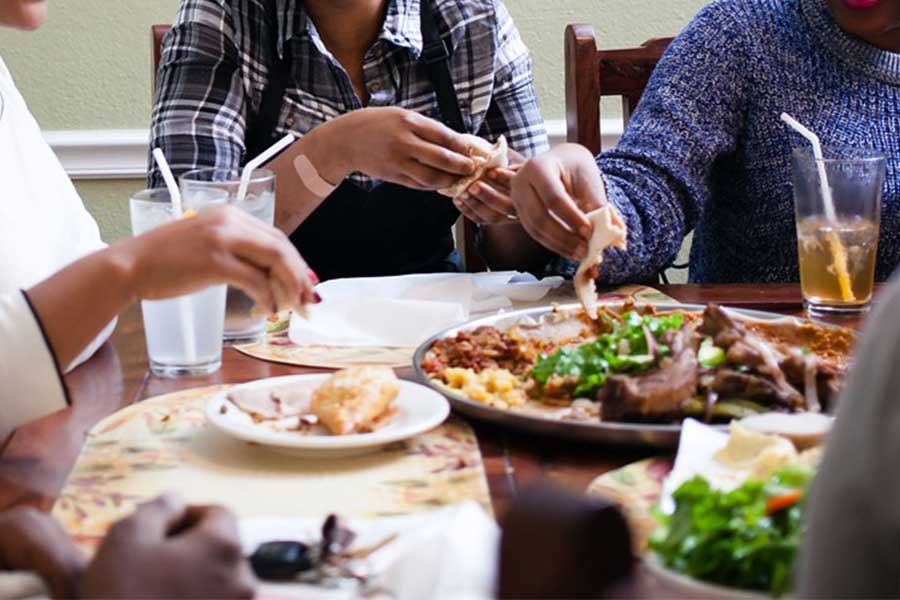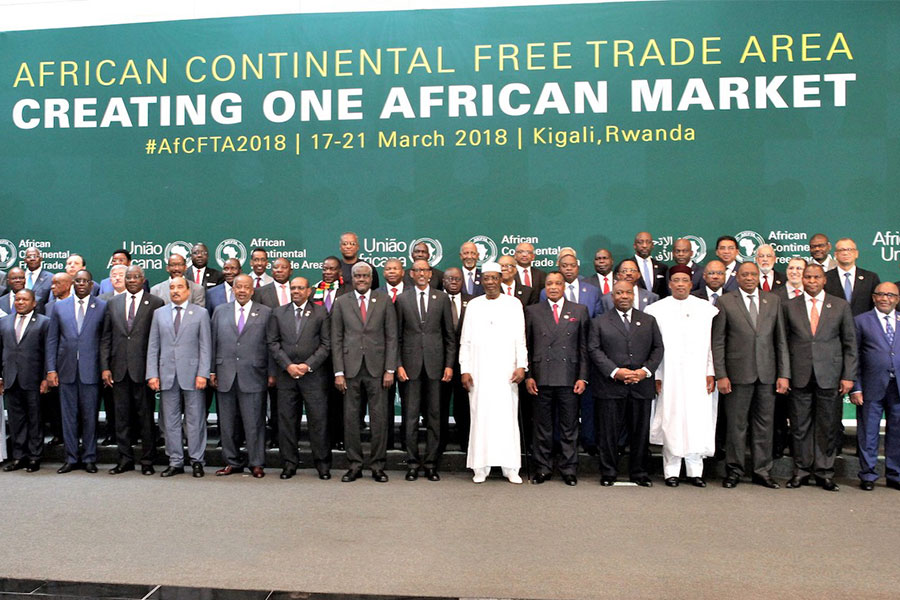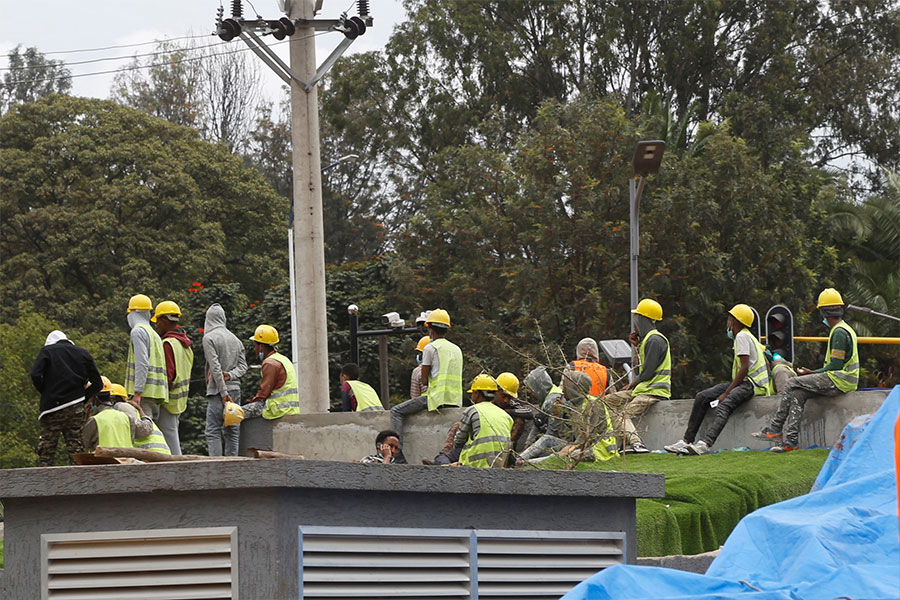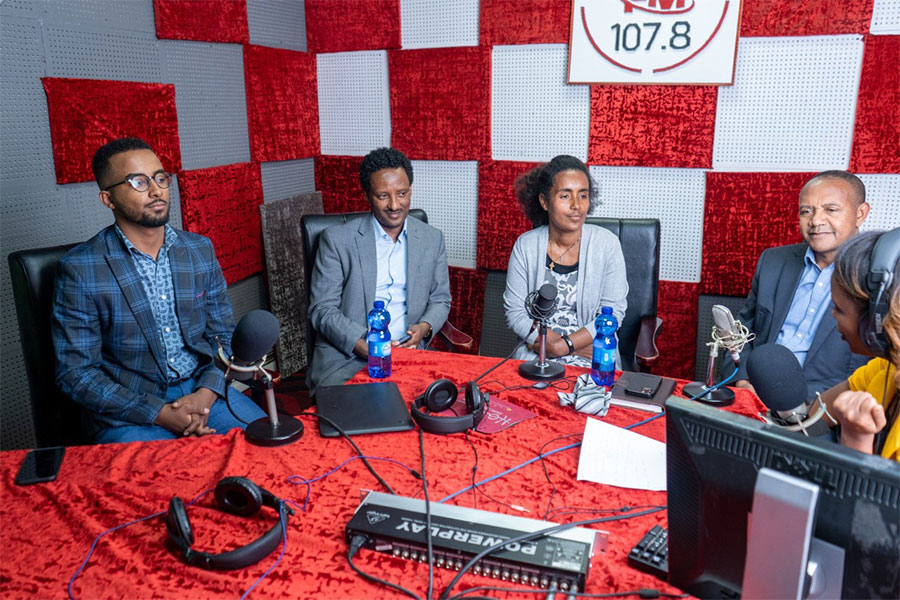
Covid-19 | May 09,2020
Apr 17 , 2020
By Abebe Haile-Gabriel ( Abebe Haile-Gabriel (PhD), Food & Agriculture Organisation (FAO) assistant director-general and regional representative for Africa. )
These are unprecedented times. The global pandemic has affected every member of this generation, and countries around the world are throwing all available resources at the problem in attempting to mitigate its massive repercussions.
As Africa starts closing its borders and locking down communities to mitigate the risks, all countries need to take urgent measures to lessen the impact on food systems and all dimensions of food security and nutrition.
FAO’s 2019 Africa Regional Overview of Food Security showed that there are 256 million Africans that are undernourished, 20pc of the continent's population. Out of this group, 239 million are in Sub-Saharan Africa. Thirty-four out of the 44 countries currently in need of external assistance for food are in Africa, according to the FAO Global Information & Early Warning System.
These stark figures show that we were already vulnerable pre-COVID-19. Unless we take timely measures, we risk a looming food crisis. There is enough food for every African. This is an avoidable crisis. But if people panic we will repeat the mistakes of the 2007-08 food crisis.
Another hard lesson for us to learn was the Ebola Virus Disease outbreak in 2014-16. Quarantines and panic led to a spike in hunger and malnutrition. The suffering worsened as restrictions on movement led to labor shortages at harvest time, since farmers were unable to bring their produce to market.
The food systems and food supply chains are interlocked, and disruption in one place can have rippling effects. It is therefore paramount that prevention and risk reduction strategies should be in place.
As we know, agriculture is the livelihood for hundreds of millions of Africans. We need to promptly take measures to ensure that food supply chains remain functioning to mitigate the risk of large shocks that will have a considerable impact on everybody, especially the poor and the most vulnerable.
Vulnerable groups include small-scale farmers, pastoralists and fisherman who are unable to work. They will also have difficulty accessing markets to sell their products, which will limit their limited purchasing power even further. Informal labourers, on the other hand, will lose income from the work they typically find during the harvesting and processing season. COVID-19 spares no one. By now we have millions of children missing school, and, most importantly, many who no longer have the school meals they have come to rely upon.
Countries need to meet the immediate food needs of their vulnerable populations, boost their social protection programmes, keep global food trade going, ensure the domestic supply chain gears keep moving, and support smallholder farmers to increase food production.
Another worry throughout Africa is the existing humanitarian crises. Conflict-driven crises continue to be the primary cause of the high levels of severe food insecurity, while drought, floods and other shocks have also aggravated food insecurity conditions locally.
In the Horn of Africa, several countries are facing the worst desert locust crisis in over 25 years. This is a dangerous threat to food security and livelihoods, which could lead to further suffering, displacement and potential conflict. More than 20 million people are already facing acute food insecurity, and the locust invasion and the pandemic will drive this figure even higher.
It is therefore critical that donor countries ensure continued delivery of humanitarian assistance where food insecurity is already high. This disease does not recognise borders. Movement of food and trade must remain unabated across borders in compliance with existing food safety standards.
Food supply chain disruption, including hampering the movement of agricultural and food industry workers and extending border delays for food containers, can result in the spoiling of perishable food.
We must prevent the repeat of these scenarios; it is in times like these that more, not less, global and regional cooperation becomes vital.
Now is the time to show solidarity, act responsibly and adhere to our shared goal of enhancing food security, food safety and nutrition. We must ensure that our response to COVID-19 does not create unwarranted shortages of essential items and exacerbate hunger and malnutrition.
Amidst this crisis, multilateral organisations should work with countries to anticipate and mitigate the impact of the pandemic on food security and livelihoods. We should continue to support the efforts for the alleviation of COVID-19’s effects on food trade and markets.
This is the time where our individual efforts must come together as regional aspirations. We have a common goal – keeping Africa food secure and healthy.
PUBLISHED ON
Apr 17,2020 [ VOL
21 , NO
1042]

Covid-19 | May 09,2020

Radar | Apr 27,2025

Fortune News | May 18,2024

Viewpoints | Jul 18,2021

Fortune News | Mar 23,2019

Radar | Oct 09,2021

View From Arada | Apr 13,2024

Viewpoints | Jul 07,2024

Advertorials | Mar 06,2023

Featured | Nov 21,2018

Dec 22 , 2024 . By TIZITA SHEWAFERAW
Charged with transforming colossal state-owned enterprises into modern and competitiv...

Aug 18 , 2024 . By AKSAH ITALO
Although predictable Yonas Zerihun's job in the ride-hailing service is not immune to...

Jul 28 , 2024 . By TIZITA SHEWAFERAW
Unhabitual, perhaps too many, Samuel Gebreyohannes, 38, used to occasionally enjoy a couple of beers at breakfast. However, he recently swit...

Jul 13 , 2024 . By AKSAH ITALO
Investors who rely on tractors, trucks, and field vehicles for commuting, transporting commodities, and f...

Oct 18 , 2025
The political establishment, notably the ruling party and its top brass, has become p...

Oct 11 , 2025
Ladislas Farago, a roving Associated Press (AP) correspondent, arrived in Ethiopia in...

Oct 4 , 2025
Eyob Tekalegn (PhD) had been in the Governor's chair for only weeks when, on Septembe...

Sep 27 , 2025
Four years into an experiment with “shock therapy” in education, the national moo...